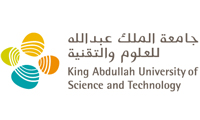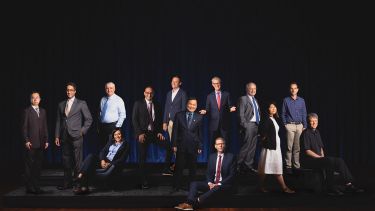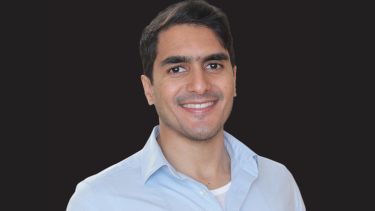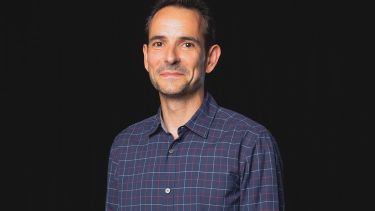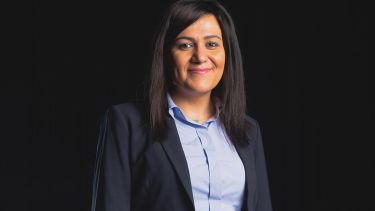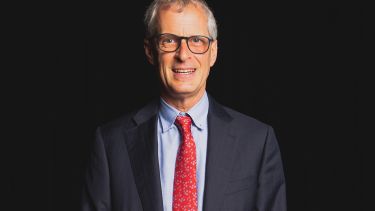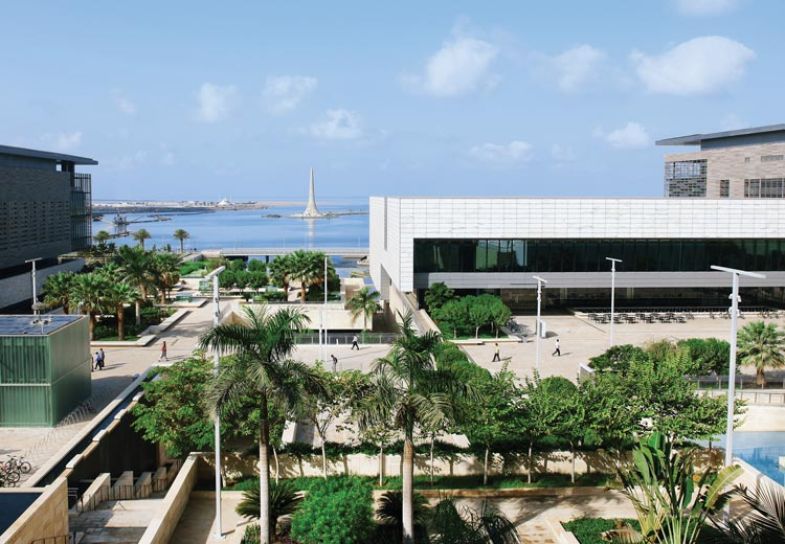
The generous KAUST Discovery Doctoral Fellowship offers cutting-edge graduate research opportunities to high-achieving candidates
King Abdullah University of Science and Technology (KAUST) in Saudi Arabia is inviting North American and European PhD candidates to apply for a fully funded doctoral fellowship in 2022.
“It’s a truly unique, once-in-a-lifetime experience to conduct fully funded research in a purpose-built research environment with an abundance of opportunities, both in and out of the lab,” says Jon Beard, director of admissions and student recruitment at KAUST.
The KAUST Discovery Doctoral Fellowship, which launched with backing from the European Science Foundation, will “support PhD students as they engage with a range of interdisciplinary projects addressing the world’s pressing scientific and technological challenges related to food, water, energy, health, digital and the environment”, Beard says.
Established in 2009, KAUST has been working to position itself as a beacon of science and technology research. Despite its relative youth, the Saudi Arabian institution is recognised as a global and regional leader in scientific research.
The university ranked third in Times Higher Education’s 2021 Arab University Rankings, scoring highly for research and citations. It sits in the top 100 globally, ranking in 97th place according to US News’ 2022 Best Global Universities rankings.
The Discovery Fellowship specifically targets high-achieving candidates from Europe and North America who are looking to pursue a PhD in a science, technology, engineering or mathematics-related field.
The three-year fellowship consists of an inclusive package worth about $95,000 (£70,000) per year. It includes a generous living allowance, a supplementary research grant, on-campus housing and utilities, medical and dental insurance and relocation costs, such as visas, airfares and annual return flights home. Successful candidates will not have to pay tuition fees, Beard adds.
“The ideal candidates for the KAUST Discovery Doctoral Fellowship should be high-achieving, passionate and driven students from Europe or North America who want to pursue their PhD in a world-class science and technology research institution,” he says.
The campus, located on the pristine shores of the Red Sea about an hour north of cosmopolitan Jeddah, was designed from the ground up to create an environment in which science and technology research can thrive.
Its location gives faculty and students a geographic advantage in terms of understanding the effects of climate change on desert environments. Similarly, its arid setting has propelled researchers to investigate water-saving and desalination technologies.
Moreover, Saudi Arabia has traditionally built its economy on fossil fuels, having the second-largest proven oil reserves in the world, but it is diversifying its energy generation. KAUST researchers are looking to develop and hone alternative energy technologies.
Outside the lab, the KAUST also has a lot to offer, Beard says. The campus, which is effectively its own smart city, includes private housing, beaches, gyms, pools, restaurants, a medical centre and shopping facilities.
When launching the university, the late King Abdullah Bin Abdulaziz Al Saud said: “It is my desire that this new university becomes one of the world’s great institutions of research; that it educate and train future generations of scientists, engineers and technologists and that it foster, on the basis of merit and excellence, collaboration and cooperation with other great research universities and the private sector."
Since its inception, KAUST has worked to attract the best talent in terms of staff and students. Nearly 120 nationalities are represented on KAUST’s campus. “Our students learn from renowned international faculty in their field and have access to an abundance of learning and development resources,” Beard says.
These resources include access to world-class facilities, such as its Core Labs. The institution’s Core Labs are a system of multidisciplinary, interconnected laboratories, each of which is equipped with state-of-the-art technology and skilled staff to guide students.
The university also boasts an innovation and entrepreneurship centre, where staff provide advice and training to students who are looking to commercialise their research and inventions.
Student support is integral to the Discovery Fellowship, Beard says. “We have a dedicated student support team that is on hand from the moment a student starts their journey at KAUST, including a government affairs and onboarding team that supports our students in obtaining their visas and arranging their flights to come to KAUST.”
Once on campus, the university also has a graduate development and services team to support students in all aspects of campus life, from accommodation to professional development, counselling, events and recreation. It also offers a specialised English language and communications programme to assist graduate students with integrated skills, writing, oral presentation and pronunciation.
There are four steps to the KAUST Discovery Doctoral Fellowship application, all of which can be completed online. First, prospective fellows must identify a topic by exploring the research topics available at the university, which range from desert agriculture to artificial intelligence. Second, Beard strongly recommends that hopeful candidates identify a supervisor, although this is not mandatory. Third, candidates can apply through KAUST’s online portal and, finally, they should submit their research proposal via the European Science Foundation’s portal, all of which can be found on the fellowship’s webpage.
Beard notes that strong applicants who are not successful in their application for the fellowship may still join the university as regular PhD students with attractive benefits that come as standard.
The benefits extend beyond the three years that graduates spend on the campus, Beard says. “Students who graduate from KAUST become lifelong members of our global alumni community across more than 80 countries with multiple international and regional hubs,” he says.
“Whether our alumni are interested in founding their own start-up, building a career, or reconnecting with other alumni, we have an engaged alumni affairs team and network of global volunteers to support,” Beard says.
Applications for the KAUST Discovery Doctoral Fellowship close on 13 February 2022, at 5pm Central European Time. Incomplete or late applications will not be considered, and only one application is permitted per candidate.
Find out more about the KAUST Discovery Doctoral Fellowship.
